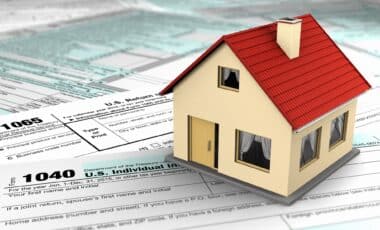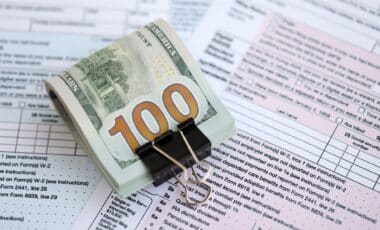Housing costs, both rental and ownership, have soared in recent years. This surge in housing costs raises the question of what kind of help the government can provide. So, If you are struggling to meet the costs of housing, you can apply for government assistance through official channels.
It is, however, worth pointing out that this financial help applies only to those in receipt of benefits from the Department for Work and Pensions (DWP).
For those who are not claiming benefits but are paying the housing costs, they are advised to contact their local council. Many councils run welfare or household assistance funds.
DWP and Official Sources Support for Housing Costs
Universal Credit Housing Element
Universal Credit Housing Benefit helps people on low incomes to cover rent and some service charges. Payment is made monthly at the same time as the overall Universal Credit payment by the Department for Work and Pensions (DWP). However, it cannot be used to cover mortgage payments.
To qualify for Housing Benefit, claimants must prove to the DWP that they pay rent, whether they rent privately or in social housing.
The housing element is usually paid to the claimant, who is then responsible for paying their landlord. In some cases, the DWP may pay the landlord directly.
Generally, the amount you qualify for is based on the local housing allowance rate for private rented property in your area, which means that the amount you qualify for is different wherever you live.
The number of rooms you may need and the number of people who will be living in the home are also taken into account. You will therefore be entitled to a room for each of the following features:
- You (and your partner if you have one)
- Any other person over 16, as long as they aren’t living with you as your tenant
- Two children under 16 of the same gender
- Two children under 10
- Any other child under 16
Housing Benefit
Housing benefit is a form of assistance that can be used to pay rent and even certain charges. However, it cannot be claimed to help pay a mortgage.
It is currently being phased out and replaced by Universal Credit, which means that new claimants are not currently being accepted.
However, under certain circumstances, you can submit a new application. These conditions are as follows:
- You and your partner, if you have one, are of state pension age
- You or your partner has been receiving Pension Credit since before 15 May 2019
- You live in temporary accommodation
- Your landlord is a county council, charity, or housing association, and they provide you with care or support
- You get accommodation from a county council, charity, or housing association because you need to care or support
Claimants are entitled to receive housing benefit regardless of their employment status. The amount granted varies according to housing conditions.
Discretionary Housing Payment
Discretionary Housing Payment is a payment that can contribute towards housing costs if you are claiming Housing Benefit or the housing costs element of Universal Credit. These payments are distributed by your local council, not the DWP.
DHPs are a lifeline for renters who are facing financial hardship or even the risk of losing their home because they can’t pay their rent. And you don’t have to pay the money back.
According to Turn2Us, additional support can be requested for a variety of reasons, including:
- Your Local Housing Allowance is lower than your rent in private rented property.
- Your Housing Benefit or Universal Credit is reduced because of non-dependant deductions/housing costs contributions.
- Your Housing Benefit or Universal Credit is reduced because you are working age, and it has been decided that you have a spare bedroom in social rented property (bedroom tax).
- Your Housing Benefit or Universal Credit is reduced due to the Benefit Cap
In addition, you may ask to be paid for one-off costs such as a rent deposit, advanced rent or moving expenses to help you move into a new home.
But, you cannot use it to cover an increase in rent due to arrears, or to make up the difference if too much is clawed back from your housing benefit.
Support for Mortgage Interest (SMI) Loan
This aid is given out in the form of a loan to help pay the interest on your mortgage or other housing purchase, repair and improvement loans. It cannot be used to repay the capital of your mortgage. This service is available to those claiming:
- Universal Credit
- Pension Credit
- Income Support
- Jobseeker’s Allowance (income-based), or
- Employment and Support Allowance (income-related).
Managed by the DWP, it is usually paid directly to your lender and will help you pay the interest on your mortgage or loan up to a maximum of £200,000, or £100,000 if you qualify for Pension Credit, according to the government website. The limits may be higher if the loan is used to finance alterations to your home due to disability or illness.
Bear in mind that the SMI is a loan and interest will be added to the total amount you owe until it is repaid. But there are no other charges to pay. For more detailed information on housing costs assistance from the government, visit GOV.UK.









